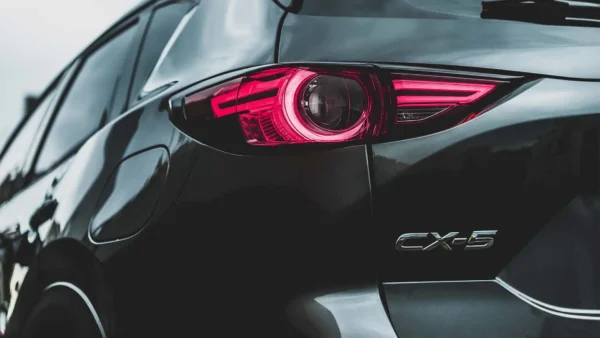To provide drivers with additional flexibility, the Financial Services Regulatory Authority of Ontario (FSRA) released an announcement regarding changes being made to the standard Ontario auto insurance policy, introducing OPCF 49, a form which would allow drivers to opt out of a once-mandatory coverage: direct compensation-property damage (DC-PD). Although this option, available beginning January 1, 2024, gives people more reign over customizing their coverage, dropping DC-PD could leave drivers exposed.
What is DC-PD or direct compensation-property damage?
DC-PD is designed to compensate drivers directly if their car is damaged in a collision with at least one other vehicle. It’s part of Ontario’s no-fault auto insurance system.
With the upcoming changes, DC-PD will still be available to purchase from auto insurance carriers but drivers may elect to sign OPCF 49, which will allow them to opt out of DC-PD coverage. Policyholders can sign OPCF 49 at any point in the policy term upon January 1, no matter what stage of policy term they are currently in. The same applies for if the policyholder wishes to change their mind and wants to reinstate DC-PD (or DC-PD and all perils/collision) on their vehicle.
How DC-PD coverage works in Ontario
DC-PD coverage works if the following conditions are met:
- One or more other vehicles were involved in the accident
- The accident took place in Ontario
- At least one of the other vehicles that were involved is insured by a company licensed to sell insurance in Ontario
- The accident was only partially your fault or you were entirely not at-fault
If these conditions are not met, then you may still have coverage so long as you have collision insurance. Collision insurance is optional, however. Should the accident involve an underinsured or uninsured driver, then you may be eligible for compensation under another mandatory coverage known as uninsured automobile coverage.
What does DC-PD damage cover?
If you are partly at-fault or entirely not at-fault in an accident, and all the above conditions are met, then DC-PD will cover the following:
- The contents inside your automobile
- Any damages done to your vehicle
- The loss of use of your vehicle
- Towing and storage fees
Under Ontario’s Automobile Policy section 6.2, DC-PD offers coverage for the items listed above, but each will be subject to depreciation. You won’t receive more to repair or replace your items or vehicle beyond their actual cash value.
Get an auto insurance quote in minutes.
Should you opt out of DC-PD coverage?
People might choose to opt out of DC-PD coverage to reduce their premium which can be an incentive for some drivers. The cost of DC-PD coverage can vary depending on the driver. Let’s look at a few different examples for a 36-year-old single male with a clean driving record who has been licensed for 15+ years and lives in Whitby, Ontario.
| Car | Car Value | DC-PD Cost |
|---|---|---|
| 2010 Ford F-150 | $24,599-$56,799 | $144 |
| 2017 Ford F-150 | $29,999-$76,899 | $301 |
| 2023 Ford F-150 | $46,055-$106,285 | $515 |
| 2010 Honda Civic | $18,880-$25,880 | $237 |
| 2017 Honda Civic | $19,790-$28,890 | $539 |
| 2023 Honda Civic | $26,835-$35,130 | $765 |
| 2010 BMW X5 | $58,800-$72,100 | $767 |
| 2017 BMW X5 | $68,500-$82,800 | $1,083 |
| 2023 BMW X5 | $80,700-$97,700 | $1,184 |
| 1For 36-year-old single male with a clean driving record who has been licensed for 15+ years and lives in Whitby, Ontario | ||
Here’s the same figures if the same individual had one at-fault accident and one minor conviction:
| Car | Car Value2 | DC-PD Cost (CAD)2 |
|---|---|---|
| 2010 Ford F-150 | $24,599-$56,799 | $386 |
| 2017 Ford F-150 | $29,999-$76,899 | $819 |
| 2023 Ford F-150 | $46,055-$106,285 | $1,402 |
| 2010 Honda Civic | $18,880-$25,880 | $620 |
| 2017 Honda Civic | $19,790-$28,890 | $1,983 |
| 2023 Honda Civic | $26,835-$35,130 | $3,123 |
| 2010 BMW X5 | $58,800-$72,100 | $2,089 |
| 2017 BMW X5 | $68,500-$82,800 | $2,949 |
| 2023 BMW X5 | $80,700-$97,700 | $3,226 |
| 1For 36-year-old single male with one at-fault accident, one minor conviction, and has been licensed for 15+ years and lives in Whitby, Ontario; 2Canadian MSRP from https://www.autotrader.ca/research/; 3Yearly cost, avg. values, subject to fluctuations. Data from quotes by Mitch insurance partners. | ||
With this all in mind, why wouldn’t it make sense to drop DC-PD for better savings?
Here are costs you would not be reimbursed for following any damages or losses to your vehicle in the event of an accident (without DC-PD or collision coverage):
- The repair costs for the damaged vehicle
- The loss of use of the vehicle (rental costs, bus fare, taxicab fare)
- A replacement for the vehicle
- The value of the vehicle
- Towing and storage fees
Now, take into consideration the value of those vehicles in comparison with their DC-PD coverage cost. Without DC-PD (or collision) you would be responsible for paying to repair or replace your car entirely out-of-pocket. Sure, you’d save a few hundred to a few thousand dollars a year, but that wouldn’t be nearly enough to offset the cost to replace your vehicle.
If your car is leased or financed, you may not be able to opt out of DC-PD coverage without consulting with your leasing company or the dealership. If something happened, you would end up being held personally responsible for the losses or damages to the vehicle.
What are the consequences of opting out of DC-PD?
Choosing to opt out of DC-PD doesn’t inherently save you money. In fact, dropping it may end up costing people more than they would have paid for their DC-PD coverage if they get into an accident. As good a driver as you are, you can’t always predict others’ driving behaviour. For lower-income drivers, choosing to opt out of DC-PD to save money might make sense, but it can result in more severe consequences if something happens.
The same way a financing company or dealership could require you to carry additional coverage options, like collision and comprehensive, they could also require you to carry DC-PD. Failing to keep your leased or financed car sufficiently insured could result in the leaser or dealership repossessing your car.
Having choice as an insurance consumer is important and OPCF 49 does expand on the possibilities for purchasing insurance coverage specific to the needs of a customer. Having a broker allows the consumer to receive all of the necessary information that will allow them to make an informed decision regarding the coverages that they need, while tailoring that to their individual circumstances. If you need help deciding whether the OPCF 49 is the right solution for you, our incredible team of insurance brokers is here to help.”
Theresa Wicks – Mitch sales manager
When does signing OPCF 49 make sense?
If you own an older vehicle that costs more to insure than it is worth, then it may make sense to drop DC-PD once it becomes optional. It might seem controversial to drop insurance coverage that offers protection when someone else hits you, but odds are your older vehicle would be written off regardless. Plus, the payout you would receive would be minimal and the cost savings from signing OPCF 49 might cancel that amount out.
If you aren’t sure, then your best bet is to talk to an auto insurance broker. Insurance can be confusing, and with regulations changing it can be tempting to hop on board. Our team of brokers can walk you through the pros and cons based on your personal circumstances. They’re also happy to discuss other ways to save on insurance without cutting coverages. Give us a call today.
Looking for car insurance?
Speak with a Mitch Insurance broker today to get a quote on Ontario auto insurance.
Call now
1(403)8000267






